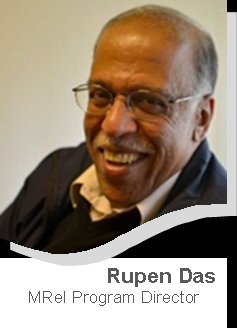Training leaders for a multi-religious and multi-cultural world
Training leaders for a multi-religious and multi-cultural world
 In October 2012, ABTS' Institute of Middle East Studies launched a new Master of Religion in Middle Eastern and North African studies. How is this new "MRel" program different from ABTS' core programs of Bachelor of Theology and Master of Divinity that are designed for pastoral training and non-pastoral marketplace-based and workplace based training? Rupen Das, Director of the MRel, responds to these and other questions in the following interview.
In October 2012, ABTS' Institute of Middle East Studies launched a new Master of Religion in Middle Eastern and North African studies. How is this new "MRel" program different from ABTS' core programs of Bachelor of Theology and Master of Divinity that are designed for pastoral training and non-pastoral marketplace-based and workplace based training? Rupen Das, Director of the MRel, responds to these and other questions in the following interview.
Q: How would you describe the MRel's objectives, structure and target group?
A: The purpose of IMES' MRel program is to foster the emergence of Evangelical leaders who are highly and holistically qualified to take on the challenges facing the global Church in an increasingly complex, multi-religious and multi-cultural world.
We seek to tap into students based in the MENA region, and equally from outside the region but interested in this region. We're not looking for pure academic students. We're seeking to develop people who have, or moving into, ministry. We may have students in the Northern countries interested in the region, or from North Africa and the Levant who are involved in ministry.
The objective is bringing Arab and non-Arab students into one context so that they learn from each other. You cannot bring them in for one or two years. And in the latter scenario, it would be more expensive. That's why we looked into an online component and a residency component, such as it is implemented in international MBA programs. This is facilitated by online learning technology.
The first ten weeks tend to be more reading and reflecting, leveling students academically, interacting online; a solid basis in content and theology is critical for interaction.
Face to face interaction in the two weeks residency aims to take the students, who would have acquired the foundation in the online course, to a deeper level. Part of the two weeks residency is visiting active ministries in the area and learning from them and interacting with key leaders.
In the first module implemented last month, we visited 5 ministries and NGOs. During our class discussions, we assessed the various models and functionality of these ministries.
The last ten weeks of the first module (ongoing now), is a reflection on the two weeks residency.
Q: What was the students' feedback following the first residency?
A: We consistently heard that they liked the combination of theology, applied and technical. Some students appreciated the depth of the theological learning. Almost everybody appreciated the applied part. They particularly valued visiting the various ministries.
Q: When teaching is about inspiring and leadership development, is distance learning the right way to go? Will there be missing dimension along the way?
A: To address the problem of leadership development using distant education, we've done several things. Each module has three faculty members; one faculty is dedicated to holistic development. Right from the beginning of the module, they interact with the students individually asking how they are using what they are learning in every aspect of their life. This is considered an integral part of leadership development.
Secondly, the two weeks residency is a very important element in role modeling and inspiring. We expose the student not only to the three faculty members but to community and ministry leaders as well.
Q: How much theology and technical knowhow is there in MRel?
A: During the residency, we had a strong theological component. Two of the most prominent problems today in the MENA region are poverty and conflicts (from international to tribal conflicts). If these are two of the major problems, then what is the applied part of them? We need people who can address poverty and we need people who can address peace building.
During every morning of the residency, we spent two hours looking at how the scripture looks at peace, poverty and injustice. We integrated theology into the course. The students would come out with an integrated theological world view: Not only how do I address poverty but how do I look at poverty from a theological and biblical perspective. We ask how God views the poor and what the scriptures say about poverty.